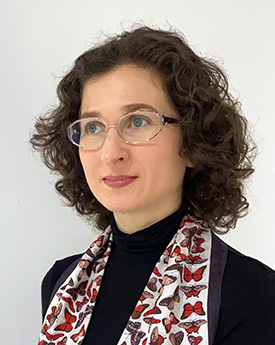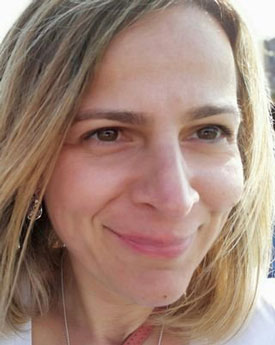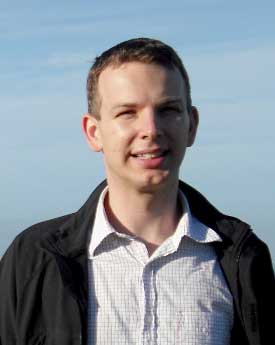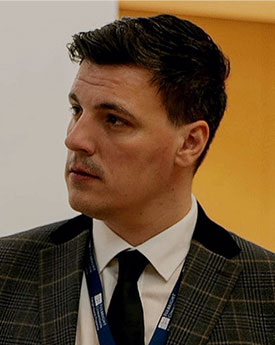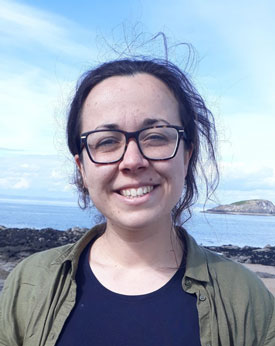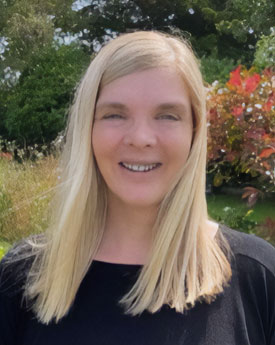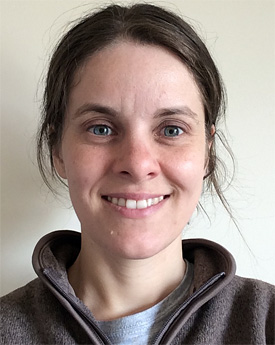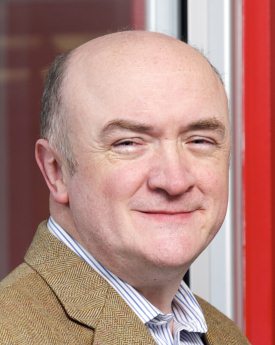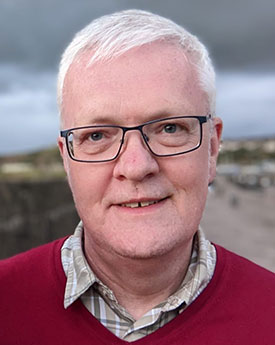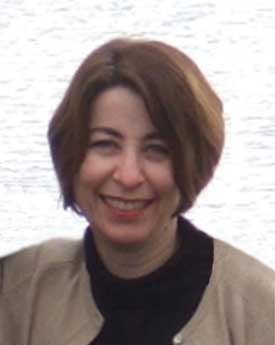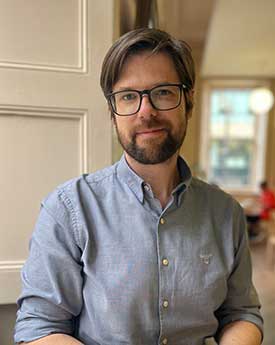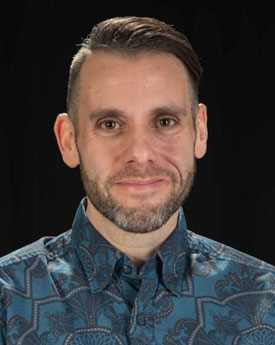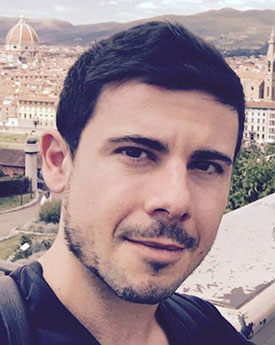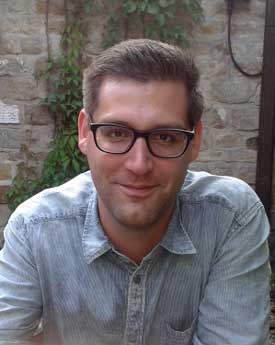Staff Research Interests
My research interests lie in the areas of second language teaching methods, language in education (with specific focus on STEM subjects), (formative) language assessment, curriculum design and evaluation, and materials development.
I research the role of culture in communication - particularly in the context of health & science topics and educaiton contexts. Specific topics of interest include: the communication of health & science topics in various media through culturally embedded frames and metaphors; how people discuss health & science topics using various media and how their communicative practices may vary across cultures; the role of culture in higher education settings. I have researched issues like obesity, mental health, climate change, sustainability, nitrogen pollution, student diversity and inclusivity using methods and theories from applied linguistics and media & communication studies. I coordinate the Culture and Communication Research Network (CULCOM) - a cross-faculty network at Lancaster University.
Corpus linguistics, particularly in relation to discourse analysis or critical discourse analysis, or recent diachronic change. Representation of identity, especially gender and sexuality. Analysis of news or online corpora.
I do corpus analyses and experimental studies to investigate how children's comprehension and productive use of specific (complex) linguistic structures is guided by the form and function of these and related structures in their input. I see language acquisition as a general learning process and also look at interactions between linguistic and social-cognitive development.
My main research interests are corpus linguistics, statistics, and the application of corpus methods in the study of speech and writing, learner language, collocations, phraseology and vocabulary. I am also interested in corpus design and corpus tools development. I welcome PhD proposals that focus on one or more of these areas.
I am a Reader in Linguistics and UKRI Future Leader Fellow with an interest in corpus linguistics, discourse analysis and health communication.
My current project, 'Public Discourses of Dementia: Challenging Stigma and Promoting Personhood' (funded £1 million by UKRI), examines linguistic and visual representations of dementia across a range of public contexts.
In 2023, I was awarded a Fulbright All Disciplines Award. As a result of this, in 2024 I will be based in Northern Arizona University, where I will carry out research on representations of dementia in US media.
I am Associate Editor of the International Journal of Corpus Linguistics (John Benjamins).
I am Co-Editor of the Corpus and Discourse book series (Bloomsbury, with Michaela Mahlberg).
I am Co-Editor of the Critical Discourse Studies (Cambridge University Press, with Veronika Koller).
I am a Fellow of the Royal Society for Arts, Manufactures and Commerce.
I am a member of the Economic and Social Research Council (ESRC) Grant Assessment Panel.
I am a member of the Arts and Humanities Research Council (AHRC) Advisory Board.
I am a member of the AHRC Peer Review College.
I am a member of the Expert Review College for Research Foundation - Flanders.
I am a member of the Executive Committee of the British Association for Applied Linguistics (BAAL).
I am the Convenor of BAAL's Corpus Linguistics Special Interest Group.
I am a member of the Executive Committee of the International Computer Archive of Modern and Medieval English (ICAME).
I serve on the Editorial Boards of the following journals: Applied Corpus Linguistics, Critical Approaches to Discourse Analysis Across Disciplines, Discourse & Society, Gerontology and Geriatric Medicine, Journal of Corpus Approaches to Chinese Social Science, Languages, Texts and Society, Research in Corpus Linguistics, Qualitative Health Communication, Social Semiotics.
My research combines a number of subareas of speech science. I am mainly interested in forensic speech technology (accent recognition and speaker recognition systems) and how we can use phonetic and sociophonetic research to uncover the inner workings and potential of these technologies.
My main research interests are language testing, and second language reading, listening, and integrated/multimodal skills. In recent research, I have focused on a) cognitive & affective factors and processes in language testing, b) methodology in language testing research, and c) language test development. I also regularly conduct language test development and consultancy work for professional and educational bodies around the world.
My research interests include corpus linguistics, forensic linguistics, sociolinguistics and news discourse and discourse analysis. My previous research covers language variation on social media, especially Twitter. I also have experience in authorship analysis. My current research examines the representation of Islam in the press. I am also investigating second learner language and spoken language. I have received Leverhulme's early career researcher fellowship to investigate anti-science discourses, such as anti-vaccination discourse, climate change denials, and anti-GMO discourse.
My work work spans pragmatics, English language (especially historical aspects) and stylistics. Within pragmatics, I am particularly interested in interpersonal pragmatics and (im)politeness. Historical pragmatics brings together pragmatics with my interests in historical linguistics, the history of English in particular. Within English language, I am particularly interested in Early Modern English. Within stylistics, I am particularly interested in cognitive stylistics, plays and Shakespeare. Methodologically, I have particular interests in corpus-based methods.
I work at the intersection of law & corpus linguistics, developing corpora and methods to analyse family justice system data. I also work on language and law projects including SafeGen (a corpus analysis of global safeguarding policies), "The sayable & the un-sayable" (state regulation of speech), & cyber-regulation of online hate/fake news. I have led/co-led research projects in excess of £3.5m for The Economic and Social Research Council (ESRC), the Nuffield Foundation, and Research England.
My research interests are related to three main areas:
- Use of corpus linguistics in language learning & teaching: design and analysis of learner corpora, spoken and written learner corpora, development of corpus-based teaching materials, corpus-based learning and teaching, Data-driven learning
- Vocabulary & lexical learning: vocabulary acquisition and use, comparison of vocabulary learning in L1 and L2, academic vocabulary acquisition, phraseology, formulaic language and collocations
- Academic English: corpus-based analysis of English for specific and academic purposes
I am exploring and expanding the boundaries of literacy studies.
I work with contemporary and historical topics. My main current interest concerns the activities of very young children in the home with digital media especially as related to language and literacy. A particular focus of interest is the part played by Conversational Assistants (also known as digital voice assistants or smart speakers). I have an extremely longstanding interest in young children's use of phones.
I aim to expand understandings of the relationship of literacy with communication in all modes, finding the discipline of Literacy Studies most helpful, with its diverse methodologies and topics. I am currently, with Uta Papen, developing an edited textbook on Research Methods in Literacy Studies.
A lasting project of mine is the Edwardin Postcard Project. The main collection is now part of Lancaster Digital Collections.
Some years ago I was Co-Investigator in two ESRC projects relating to deaf multiliteracies in India, Ghana and Uganda. I was formerly Co-Chair of Working Group 1 Children in Homes and Communities in the COST IS1640 Action The Digital Literacy and Multimodal Practices of Young Children (DigiLitEY), a member of the management committee and leader of the Day in the Digital Life of children aged 0-3 research strand.
I am the director of the Edwardian Postcard project, having held a FASS impact award and completed an AHRC Creative Exchange mini project. We are constructing a more interactive website and engaging in other activities to connect with family and local history audiences as well as museums and e-heritage users. I am currently completing a monograph.
See also the Day in the Life project website for my involvement with a continuing international programme of inter-generational research.
My (2014) book, Digital Literacies, consolidates empirical and theoretical interests in recent work including on Twitter as a professional practice and online ethnography. Earlier, my research on children and teenagers learning in formal and informal settings including in virtual worlds featured in this book and its associated ESRC seminar series.
I primarily research aggression, deception, and manipulation in computer-mediated communication (CMC) for evidential, investigative, and intelligence purposes. I tend to take a forensic linguistic approach, based on a corpus linguistic methodology, but due to the multidisciplinary nature of my research, I also inevitably branch out into areas such as psychology, law, and computer science.
My major specialism is corpus linguistics - specifically, the methodology of corpus linguistics, and how it can be applied to different areas of study in linguistics and beyond. I am currently working on applications of corpus methods in the social sciences and humanities. I am also very interested in the use of corpus-based methods to study languages other than English, especially the languages of Asia, with an especial focus on issues in descriptive and theoretical grammar.
My publications list is available here.
My research draws on insights and methods from cognitive science and critical discourse analysis to investigate the links between language, cognition and social/political action. It falls into three principal programs.
In the first, I advocate a Cognitive Linguistic Approach to Critical Discourse Studies (CL-CDS). This approach involves a semantic analysis of particular linguistic (lexical, grammatical, pragmatic) features found in political and media discourse. More narrowly, it investigates the conceptual structures that are associated with different language usages and the ideological or (de)legitimating functions that such structures may serve in specific discursive contexts.
In the second, I am concerned with the connection between Argumentation and Adapted Cognition (AAC). This approach seeks to explain rhetorical effectiveness by investigating the mapping between particular argumentation strategies found in political and media discourse and evolved heuristics and biases in social cognition.
In the third, I use experimental methods to test hypotheses concerning textual influence which emerge from analyses in CL-CDS and the AAC model.
I have used these frameworks primarily to investigate discourses of migration and political protests.
My research investigates the dynamic interplay between structure and variability in the sound systems of human language. I am fascinated by spoken language because it involves the interaction of many complex systems, including the biology of the vocal tract, the physics of sound, the dynamics of the brain, skilled movement, and the sociocognitive dimensions of language. I am particularly interested in modelling the relationship between vocal tract dynamics (motion) and cognitive systems (mind) using conceptual and mathematical tools from dynamical systems and synergetics. This spans a number of topics, including the relationship between high-dimensional phonetic variation and low-dimensional phonology, acoustic-articulatory relations, and sound change. The majority of my work uses a combination of electromagnetic articulography, ultrasound tongue imaging, and computational modelling
I am also associate editor at Journal of Phonetics.
I am currently working on the following projects:
- Modelling the dynamics of phonetic variation & phonological change (AHRC fellowship, 2024-25)
- Targets and dynamics in speech (with Patrycja Strycharczuk, AHRC standard grant, 2019-23)
Veronika Koller is interested in socio-cognitive approaches within critical discourse studies, specifically the role of metaphor in constructing identites and communicating ideologies. Her areas of expertise are politicial discourse, health communication, corporate discourse, and language and sexuality. Veronika’s research includes work on metaphor and gender in business media discourse, images of community in lesbian discourses, the discourse of corporate branding, metaphor in end-of-life care as well as, most recently, the discourse of cancer charities and the language used around Brexit.
1. Psychological aspects of second language learning. I investigate the speech production and monitoring processes of second language learners. I conduct studies on the role of language aptitude and working memory capacity in language learning.
2. Language learners with special educational needs. I was the chief investigator of a project that explored the foreign language learning processes of dyslexic students. I authored a course-book on specific learning difficulties and language teaching and was part of an award-winning teacher training project in the field of dyslexia and language learning.
I worked on a digital English and German task bank for young dyslexic language learners in the Erasmus+ sponsored EnGaGe project and the Comics for Inclusive Language Learning project which won the British Council's ELTon award.
You can find a lot of useful resources, video lectures, articles and further links on my website: Specific learning difficulties and the learning of additional languages.
My research interests lie broadly in speech variation on the levels of languages, communities, and individuals. I work at the intersection of phonetics, sociolinguistics, and forensic speech science, and am keen on bringing thereotical, practical and methodological insights from different areas to inform the field of forensic phonetics.
My research in forensic speech science addresses questions related to bilingualism and voice identity, with a focus on language mismatch in forensic voice comparison. In the areas of sociolinguistics and laboratory phonology, I work on phonetic accommodation, the sociophonetics of migrant communities, as well as individual and cross-linguistic variation in coarticulatory phenomena.
Alison Mackey is interested in second language acquisition, specifically, input, interaction, corrective feedback and task-based language learning and teaching. She is also interested in second language research methodologies and willing to supervise students in any of these areas.
I am a member of the corpus research group, which was awarded a Queen's Anniversary Prize for its research in 2015.
I undertake research using corpus linguistics in a range of areas across theoretical and applied linguistics. As well as undertaking 'blue skies' research, I have also done applied work with a range of partner organizations in the public sector (e.g. the Department of Culture Media and Sport, the Environment Agency and the Home Office) and the private sector (e.g. with British Telecom, IBM, Nokia and Research in Motion). I have worked on projects in a wide range of languages, including Arabic, Chinese, English, French, Polish, Portuguese and Spanish. I have also constructed many corpora including the CRATER, EMILLE and British National Corpus 2014 corpora. EMILLE remains the largest and most comprehensive collection of written and spoken corpus materials for South Asian languages.
My research focus lies on linguistic anthropology, critical sociolinguistics and language policy in a variety of social and political contexts. This includes ethnographic and discourse-analytical research at the intersection between language and political economy. My work investigates the commodity value of languages and speakers within neoliberalism and the reproduction of social inequalities through language. I’m currently focusing on the relation between language and mobility in healthcare. Another part of my work addresses language ideologies in post-Soviet countries, in particular in the South Caucasus and Central Asia. I have also extensively worked on linguistic landscapes of communities in political transformation.
My research involves sociolinguistics, phonetics, laboratory phonology. In particular, I focus on the Celtic languages, especially Scottish Gaelic. I consider the phonetic and social implications of bilingualism and have extensively investigated the context of minority langauge revitalisation in Scotland. Other research interests include rising intonation in Glasgow Gaelic and Liverpool English, as well as ultrasound tongue imaging. My ultrasound research so far has considered tongue root contrasts in Twi and Ghanaian English, as well as palatalisation contrasts in Gaelic sonorants.
My main research interests are:
literacy and education (the politics and practices of teaching reading and writing, specifically the debates around the use of phonics; adult literacy policy and practice; health literacy; critical literacy and the use of picture books to engage children in critical thinking and analysis; literacy development in countries of the Global South, specifically for deaf children and young people;
collaborative action research; co-creation
Linguistic landscapes and their role in language and literacy teaching
I undertake research on testing language for specific purposes, the scope and definition of language constructs in particular contexts, speaking assessment, language assessment literacy, test users’ perspectives, and test impact.
More generally, I am interested in the nature of discourse communities and how newcomers gain access to them in terms of language. I study English in medical/healthcare contexts and in academic contexts.
My post at Lancaster University is the Trinity College London Lectureship in Language Testing and I am involved in research and development projects with Trinity College London.
Digital literacies and language learning; teaching English as an additional language; multilingualism in mainstream classrooms; multimodality; social semiotics; knowledge mobilization/transfer
I am interested in the cognitive basis of language learning and processing, i.e. I study how the mind and brain acquires and processes novel language(s). I am particularly interested in implicit learning, statistical learning, heritage language bilingualism, and second language acquisition.
For more information, including publications, please visit my website or the Language Learning lab website.
Jason Rothman is Professor in Psycholinguistics and Cognitive Science. He works on language acquisition, linguistic processing and language-associated links to structural and functional adaptations to the brain and cognitive behavior in children and adults, especially in various bi-/multilingual populations. He is founding editor of the journal Linguistic Approaches to Bilingualism, was formerly executive editor of the book series Studies in Bilingualism.
Research Interests:L1, L2, L3 Acquisition; Linguistic and Acquisition Theoretical Epistemology; Modelling of Initial Stages Linguistic Transfer (morphosyntax) in Multilingualism; Heritage Language Bilingual Acquisition/Processing, Development and Ultimate Attainment;The Role of Cognitive Economy in Language Acquisition and Processing; Cognitive (execuitive) functioning in bi-/multlilingualism; Neurocognition/Neurobiology of language; Bilingualism and (cognitive) aging
My most recent interest is in written bilingual and multilingual texts - magazines, websites, signs and other texts which contain a mixture of languages. Another main interest of mine is in the Sociolinguistics of Orthography, a relatively unexplored field which examines the cultural and social aspects of spelling and writing systems. My other main interests are in pidgin and creole languages and in the analysis of conversational code switching in bilingual communities.
My research interests are in health communication, medical humanities, stylistics, and metaphor theory and analysis. In my work I combine qualitative analysis with corpus linguistic methods.
Health communication/medical humanities: representations of autism and mental illness in fictional and non-fictional narratives; metaphor, cancer and the end of life; (figurative) language, creativity and chronic pain; metaphors for Covid-19; discourses around vaccinations.
Stylistics: cognitive stylistics; corpus stylistics; mind style in fiction.
Metaphor theory and analysis: metaphor in literature, politics, science, health communication, end-of-life care; metaphor and embodied simulation; corpus approaches to the study of metaphor.
My research is both theoretical and applied in nature. It uses Pragmatics and Cognitive Linguistics methods in various contexts and populations, including dialogic speech in Intercultural and Cross-cultural Communication, Language Change, Autism, First Language Acquisition, Dementia and so on.
My publications are focused on corpus-based and multifactorial analysis of naturalistic interaction occurring in context-specific settings of typologically different languages, such as Mandarin Chinese and other Sinitic languages, but also Germanic, Romance and other language families.
One of the areas of my research is the combination of diachronic, developmental and interactional analysis of Theory of Mind, Facework and Intersubjectivity, about which I published the book Language and Social Minds: The Semantics and Pragmatics of Intersubjectivity (Cambridge University Press, 2021).
I am interested in (Im)politeness research, with a focus on the proto-social notion of Reciprocity and how responsive behaviour regulates moral order and social identity in different cultures. This combines with other areas of Pragmatics as treated in my book Pragmatics: Theory and Methods (Oxford University Press, 2024).
Linguistic imitation is also central in my research: the way people sound like one another or re-use one another’s expressions is a key indicator of engagement, empathy and creativity. This phenomenon is called ‘Resonance’ and is discussed in detail in my book Dialogic Interaction and Resonance: The Pragmatics and the Grammar of Creativity (Cambridge University Press: 2024).
I am also interested in diachronic phenomena of language change, such as grammaticalization, (inter-)subjectification, entrenchment, constructionalization and semasiology, as discussed in my recently edited book Different Slants of Grammaticalization (Benjamins: 2023).
Much of my work is also devoted to Aspect, Evidentiality, Modality and Pragmatics Markers.
My methodology is characterised by qualitative and quantitative corpus-based/driven models of analysis, R-based machine-learning modelling and data-manipulation techniques, questionnaire design, typological and intercultural-pragmatic comparison.
My research interests centre around phonological variation and change in accents of English.
My personal page can be found at https://danielleturton.rbind.io/
Engagement with material texts, including digital texts, is one of the central ways in which the social world is co-ordinated, shaping people's identities and experiences as well as the social relations within which they are situated. I am interested in developing better understandings of these processes through detailed local studies of people's engagements with texts in specific settings, situating myself within literacy studies and linguistic ethnography. Most recently, these interests have led me to study workplace paperwork and vernacular learning online. Previously I have analysed the role of literacy practices in identity construction in a parish community, and worked in adult literacy research as part of a team exploring relationships between lives and learning.
I am currently interested in two main research areas:
- Language and digitally mediated politics, and particularly political resistance
- Language policy and the politics of language
My research focuses on tense, mood and modality, pragmatic markers, indefinites and negation. It deals mainly with (West) Germanic but I also have a keen interest in Standard Average European and typology. My work can be situated in the fields of areal linguistics, contrastive linguistics, corpus linguistics, functional/cognitive linguistics and historical linguistics.
Ruth's research interests focus on (Critical) Discourse Studies, specifically on the Discourse-Historical Approach (while emphasising aspects of the integration of text and context); (national/transnational/European) identity politics; (national/European) politics of the past (specifically related to World War II and the Holocaust); racism, antisemitism, and xenophobia; and the complex dimensions of far-right populism and exclusionary rhetoric. Currently, she is analyzing the characteristics of crisis communication related to the COVID-19 pandemic and has published some articles about this. In investigating these topics, she analyzes a range of written, verbal and visual genres in systematic detail. Recent book pulications are The Politics of Fear: The shameless Normalization of Far-right Discourse (2021, Sage; https://uk.sagepub.com/en-gb/eur/the-politics-of-fear/book265617) and Methods of CDS (eds Ruth Wodak & Michael Meyer). Sage 2015 (3rd edition) (https://uk.sagepub.com/en-gb/eur/methods-of-critical-discourse-studies/book242185)


